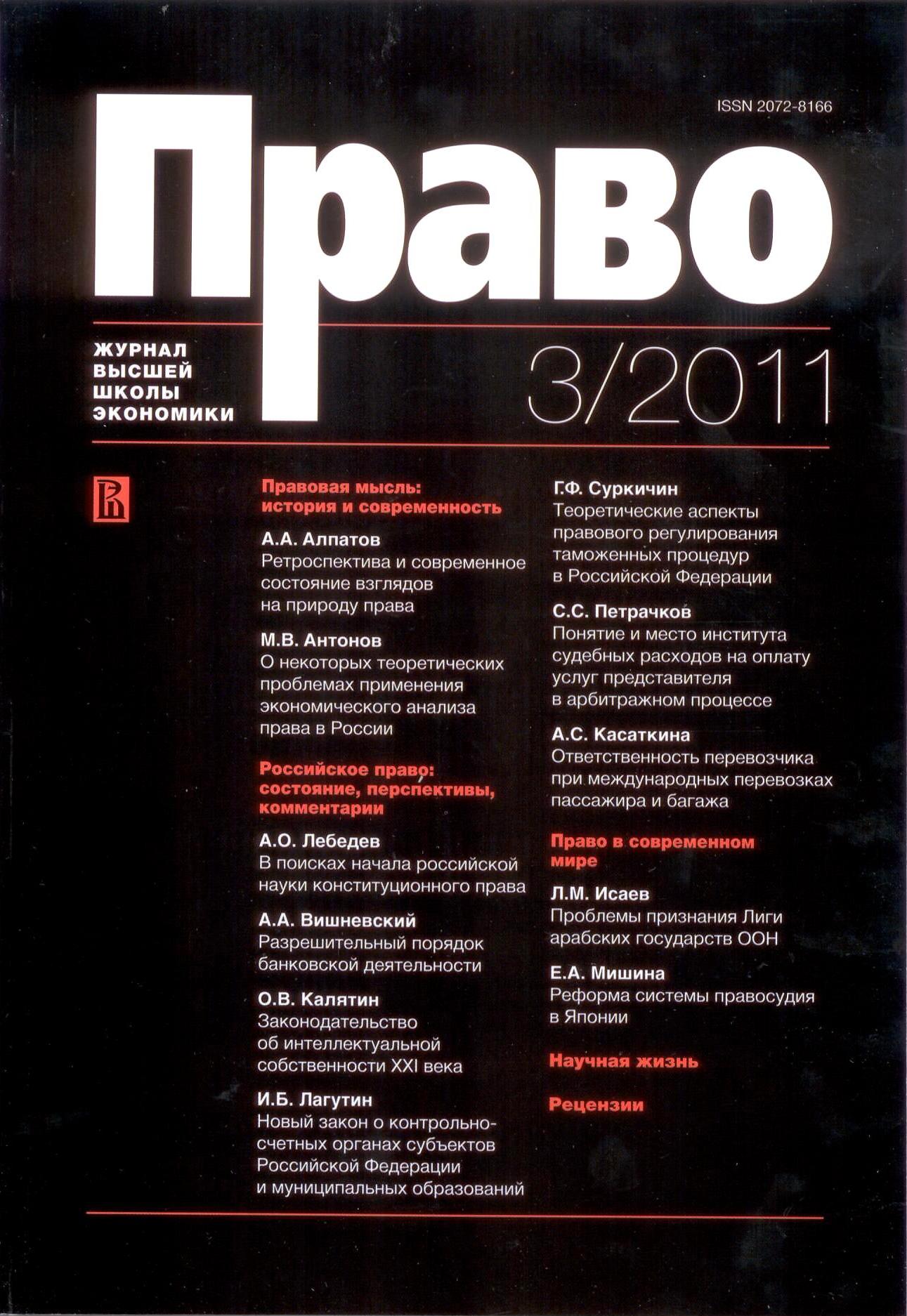Permissive Way of Banking Activity: Implementation Models in Current Banking Law
Abstract
Vishnevskiy Alexander - Professor, Deapartment of Entrepreneurial Law, Faculty of Law, National Research University Higher School of Economics, PhD (Law). E-mail: aavishnevsky@gmail.com
Address: National Research University — Higher School of Economics, 20, Myasnitskaya str., Moscow, 101000, Russian Federation.
The article considers the models of implementing banking activities in the modern banking law. The article is based on the following sources: EU directives, legislations and codes of the EU member states, normative legal acts of foreign and Russian banking institutions, opinions of civil law academics, the conception of the civil law development in Russia, RF laws. The models have been analyzed in terms of balancing between two groups of conditions to be met by the applicants of a banking license – “quantitative” conditions which are strictly fixed in the legislation, and “qualitative” conditions which are within the discretion of the licensing body. The conclusion is that there are three models in modern banking law. One of them, the oldest, “British” model is characterized with decentralization in favour of the discretion of the licensing body, “Russian” model is based on strictly fixed legislative provisions with a minimum discretion of the licensing body. It has been noted that Russian banks often act ultra viresin terms of the federal law. The author argues that the model characterized with the maximum strict regulation of all the aspects of licensing and is the least efficient in practice. The “European” model is based on the relative balance between strictly fixed legislative requirements and the discretion of the licensing body. The two latter models have a commonality as one of the requirements to use them is a special permit (authorization) to set up a credit institution. The author stresses that the common European model got a legal basis represented with the EU directives issued in the period 1970 – 2000 and being implemented by all the EU member states taking into account the special features of national law.

